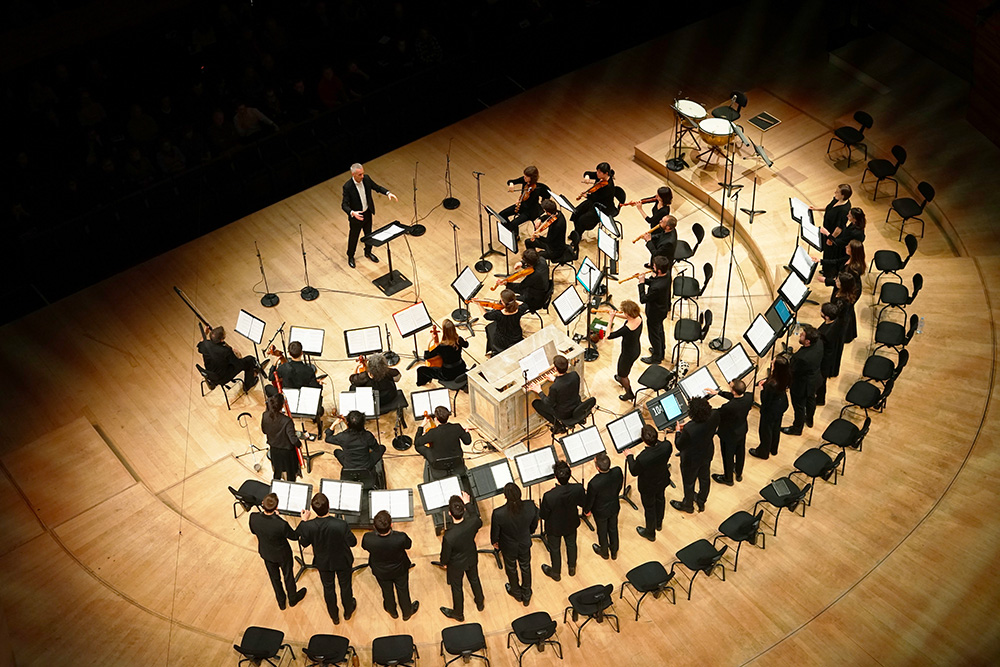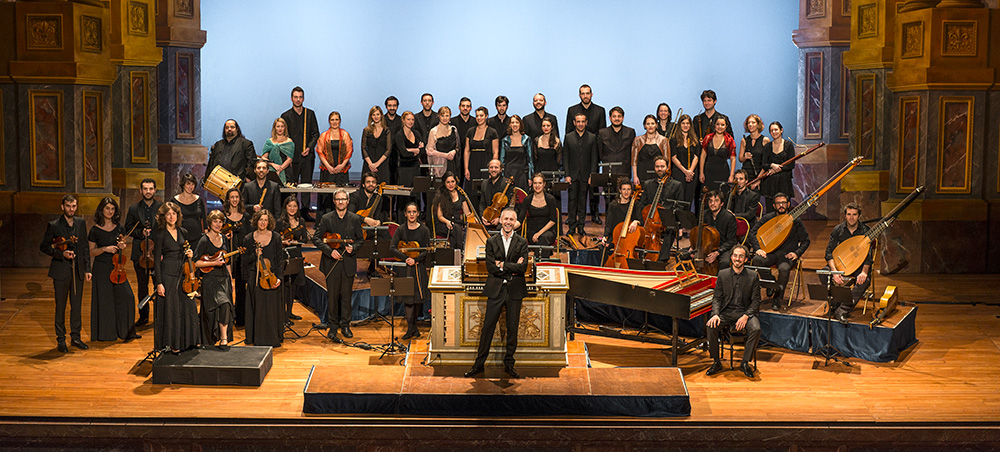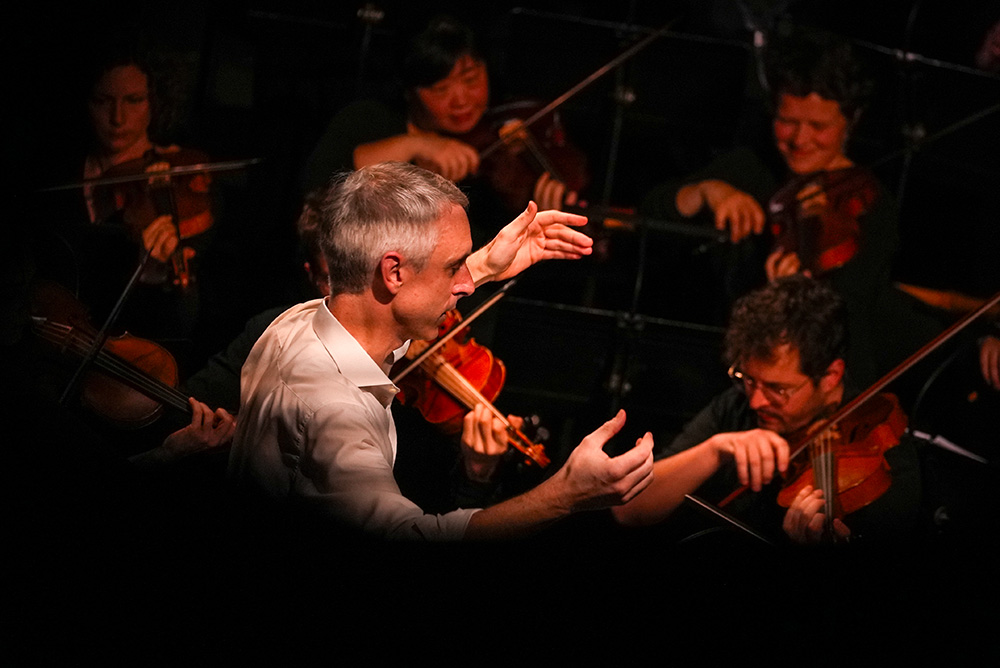Fragments of Love
Concert Partner

Programme
- Jean-Baptiste Lully: selection from the operas Psyché, Persée, Atys and Armide
Performers
- Ensemble Correspondances
- Sébastien Daucé – conductor
- Caroline Weynants – soprano
- Blandine de Sansal – soprano
- Eugénie Lefebvre – soprano
- Caroline Bardot – soprano
- Lucile Richardot – mezzo-soprano
- Vojtěch Semerád – tenor
- Abel Zamora – tenor
- Davy Cornillot – tenor
- Etienne Bazola – baritone
- Sebastian Myrus – bass
Pre-Concert Talk with Sébastien Daucé at 6.45 pm (in English)
Fragments of Love – the title of a programme combining exquisite melodies from operas by Italian-French Baroque composer Jean-Baptiste Lully. These works will be played and sung at the Prague Spring by members of the French Ensemble Correspondances, who are performing their Czech debut. The ensemble is internationally recognised for its pioneering projects involving composers of 17th century French music from the time of Louis XIV. The Ensemble-in-Residence at London’s Wigmore Hall (2018) and Théâtre de Caen collaborated on these projects with such prestigious institutions as Château de Versailles, Musée du Louvre, Fondation Royaumont and the famous early music festival in Ambronay. “The programme Fragments of Love that we are presenting at the Prague Spring is a pasticcio of four operas: Psyché (1671), Atys (1676), Persée (1682) and Armide (1686),” states Music Director of Ensemble Correspondances Sébastien Daucé. “All of them present different states of love: unrequited love, cruelty, indifference, rivalries, madness, laments. Lully’s music can be descriptive but it also conjures up a wonderful world of gods and heroes, in which all the beings on stage share their feelings with people like us.”

“During the first half of Louis XIV’s reign Jean-Baptiste Lully (1632–1687) was the most important composer in France. His talent and personality brought him to the very centre of the French royal court, where art and music played an essential role,” states Daucé. “He was a man in the right place, with an incredible intuition for the theatre. He may not have founded French opera but, via his sublime music, he elevated it and brought it to perfection. His tragic, dramatic, but also tender and enjoyable arias were extremely successful with audiences. He also became the main rival of my favourite composer, Marc-Antoine Charpentier. It was an artistic duel at a very high level!” he adds with a smile.

Harpsichordist and organist Sébastien Daucé established Ensemble Correspondances in 2009 as a group comprising students of Conservatoire de Lyon. Since that time this vocal-instrumental collective has become one of the world’s finest ensembles in the field of historically informed interpretation, regularly appearing in Europe, Japan, the United States and Latin America. They have won numerous awards for their recordings for harmonia mundi: Diapason d’Or, Gramophone magazine’s Editor’s Choice or Preis der deutschen Schallplattenkritik. The disc Perpetual Night, featuring mezzo-soprano Lucile Richardot, was the best-selling classical music album in France in 2018. “The instrumental textures provided by Ensemble Correspondances are a testament to their virtuosity,” wrote the prestigious British magazine Gramophone. Highlights of the current season include the release of their new CD André Campra: Messe de Requiem & Les Maîtres de Notre-Dame de Paris, performances of Matthew Locke’s opera Psyché in Vienna and Hamburg, Marc-Antoine Charpentier’s opera David et Jonathas in Lille, Lyon and Madrid, and a new production of the opera La Calisto by Francesco Cavalli at the festival in Aix-en-Provence. “Ensemble Correspondances is on top form,” raved Diapason magazine in 2023. The Prague Spring concert at the Rudolfinum on 26 May gives us the opportunity to discover another world-class French early music ensemble.








